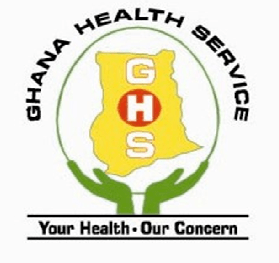MoH and GHS inaugurate Health Promotion Division
 The Ministry of Health (MoH), in partnership with the Ghana Health Service (GHS), on Tuesday inaugurated a “Health Promotion Division” in Accra to sensitise the public on the maintenance of good health and prevention of deadly diseases.
The Ministry of Health (MoH), in partnership with the Ghana Health Service (GHS), on Tuesday inaugurated a “Health Promotion Division” in Accra to sensitise the public on the maintenance of good health and prevention of deadly diseases.
The Division, established at the Korle-Bu Teaching Hospital, would, among other functions, promote early preventive strategies, healthy behaviours and wellbeing, through the creation of environments where individuals, families and communities would be informed and empowered to live healthy and happier lives.
It is also expected to promote innovations with digital platforms for healthy livestyles.
The Facility has varied departments including the Advocacy and Social Mobilisation, Health Communication and Education, and Research and Health Policy Departments.
Mrs Tina Mensah, the Deputy Minister of Health, delivering the keynote address, said ensuring health literacy was an effective health promotion approach that could accelerate action to improve outcomes.
Health literacy, she said, was the ability to gain access to, understand and use information to promote and maintain good health.
“As complex social and commercial environments are increasingly difficult for people to navigate and manage, it is important to make health promotion a priority,” she said.
Mrs Mensah noted that health promotion offered a means to achieving the Sustainable Development Goals by equipping and empowering individuals and communities on healthy living, promoting an inclusive model of governance, and advocating healthy public policies and environments.
Promoting health, she said, was not the sole responsibility of the newly created Division and, therefore, called on other divisions under the MoH and the public to support the move.
Dr Anthony Nsiah-Asare, the Director-General of the GHS, said the country had also witnessed inevitable rise in the prevalence of non-communicable diseases from lifestyle choices such as physical inactivity, poor diet, and substance abuse.
“There are also neglected tropical diseases and multiple burdens of poverty related preventable diseases such cholera, diarrheal diseases, malaria and HIV and AIDS which remain issues of public health concern,” he said.
Dr Nsiah-Asare said healthcare in Ghana involved curative, promotive, preventive and rehabilitative efforts, however, the nation had focused solely on the curative and preventive care neglecting the others.
Nonetheless, he said, the fact that measles and dysentery cases in children were rarely received in health facilities now, meant the country was doing well in the prevention of those diseases.
The Director-General disclosed that a five-year mobilisation plan to sustain the Health Promotion Division had been developed and efforts were underway to enhance the services of the National Health Insurance Scheme to complement that effort.
Dr Owen Kaluwa, the Country Representative of the World Health Organisation, said a strong primary healthcare system, which was the bedrock of Universal Health Coverage, required quality health promotion services as part of the continuum of care.
He said a well-functioning health promotion service was needed to address and mitigate the impacts of determinants of health, biological, environmental, social and economic determinants.
The Health Promotion Service, he explained, should have a capacity and mandate to influence policy not only in the health sector but other sectors as well, as most of the determinants were out of the health sector’s influence.
Source: GNA
